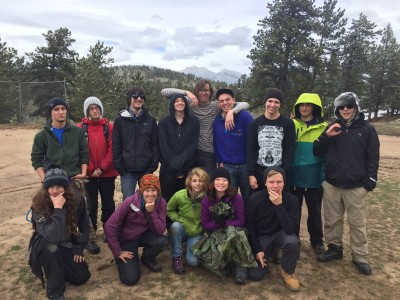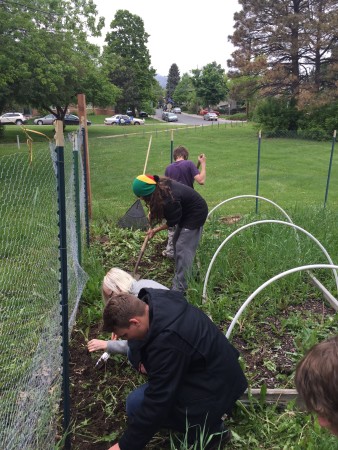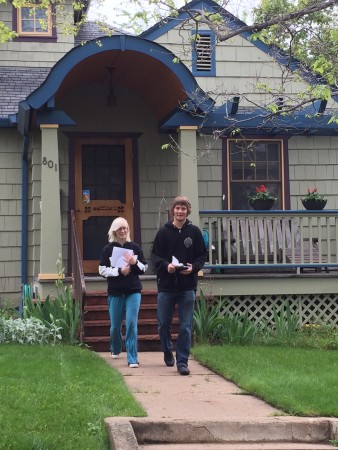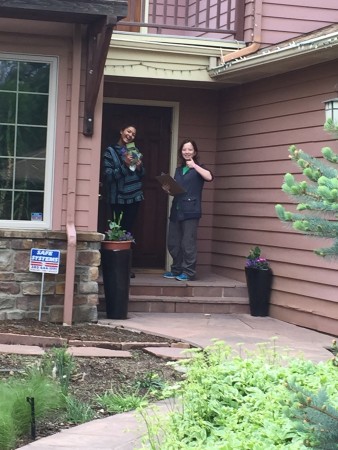
The Community Adventure Program (CAP) at New Vista High School in Boulder just finished up their spring quarter and student-led Action Project, tackling the very pervasive issue of native bee decline in Boulder County. Each quarter the students decide on a topic of interest for their Action Project and the class works together to figure out the best ways to address the topic and find solutions. The Action Project allows for increased environmental awareness around a selected issue and more importantly provides students with the opportunity to learn invaluable skills such as leadership, teamwork, community involvement, and project management.
CAP student, Gopal, gives a detailed summary of the class Action Project this quarter:

Once we had agreed that this was going to be our topic, we proceeded to choose how we would go about educating people in our community about CCD. We first had to decide what we were going to do to spread information to the people of Boulder and maximizing the ways in which we could help the native bees of Colorado. We decided on doing a three part project to maximize our efforts.

After groups were decided, the first phase was to fundraise money to buy bee-friendly seeds. The easiest way to do this was to do a bake sale at the school, which we did over a two day period. At the end of this, we had raised just over $50 dollars.
Then we went into phase two and three, which was the education and action pieces. For the education phase, we chose to walk around the neighborhoods of New Vista High School and tell folks about native bees, CCD, and pesticide use. Phase three was to help the native bees as best we could and to do this we decided to plant flowers that they are attracted to in the garden at New Vista High School. With the money that we raised, we were able to buy over 50 seed packets from BBB Seed in Boulder to plant at the school and give out to neighbors. Aside from purchasing discounted seeds, we were also gifted pamphlets from The Colorado State Beekeepers Association to hand out to neighborhoods. The pamphlets described such things as flowers that pollinators enjoy, pesticides people should stay away from, and other things you can do to help keep the bee population booming.

Students were able to gain pledges from many neighbors of New Vista and learned the difficulties and payoffs of teamwork and how leadership plays an important role in any successful endeavor. The Action Project left a lasting impact on many of the students.
CAP student, Jaden, sums up the CAP class and Action Project:
“Overall I had a great time in CAP, I learned a lot about the environment surrounding Boulder, was able to refresh my knowledge of camping and survival skills as well as teach others what I know, became closer to my classmates, and was able to contribute to the movement to save native bees. From this class I am going to take away my new found knowledge of bees and the environment, as well as the experience of doing my part in making the community safer for the native bee population.”
Special thanks to Growing Gardens and the Entomology Department at CU for sparking interest and educating our students. Also, gratitude goes out to Bee Safe Boulder for partnering with students and coming to New Vista High School to educate them on how to canvas neighborhoods effectively and spread native bee awareness in Boulder. Lastly, thank you Colorado State Beekeepers Association and BBB Seeds for your generous donations and contributions. Our Action Project would not have been such a success without all of your support!
Want to see more pictures from CAP this quarter?! Click Here.

Leave a Reply